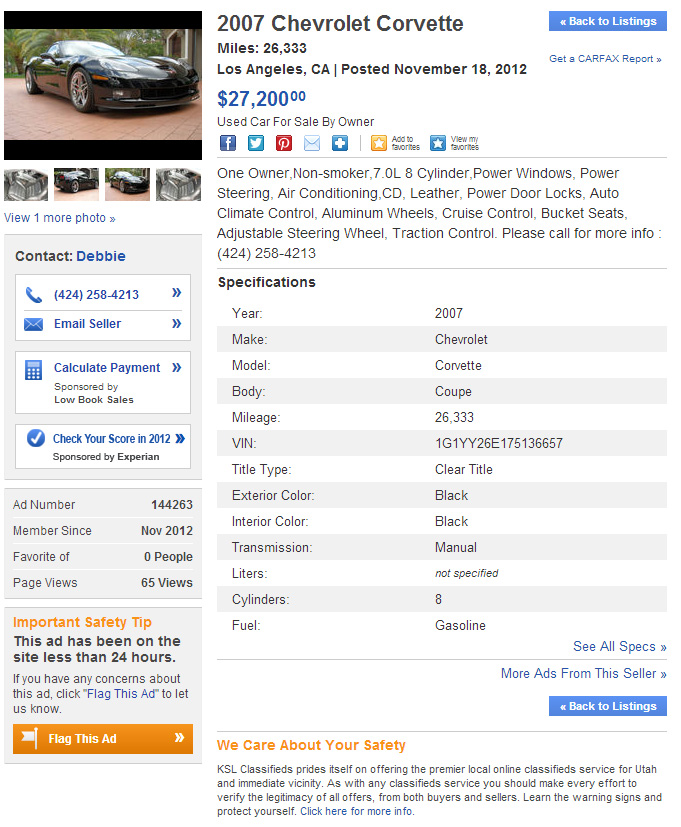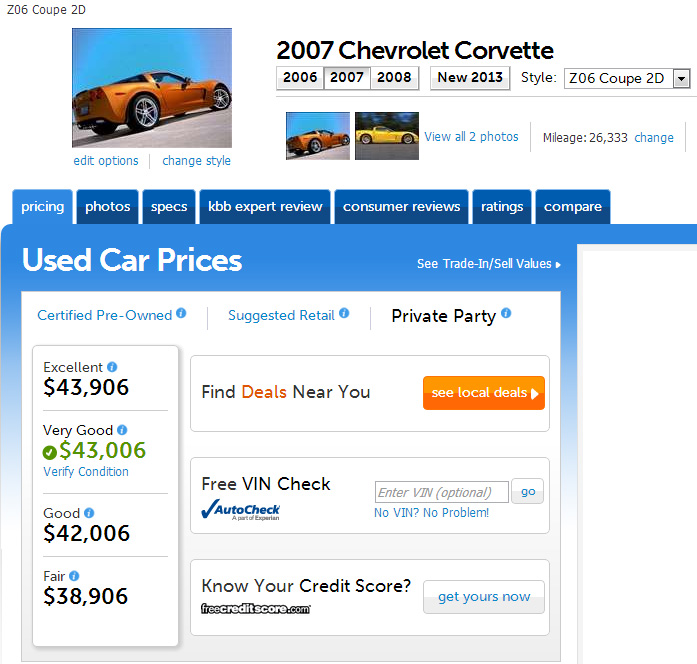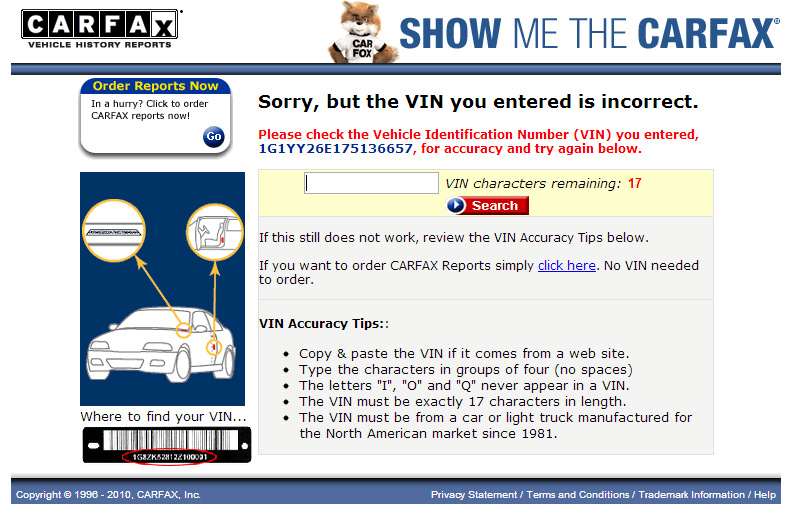I don’t know why people browse for stuff they already own. Maybe it’s some kind of comparison-based compulsion. Anyway, not the point.
I see a lot of car fraud while I’m browsing, so I thought I’d point out some telltale signs (and this can apply to any online shopping). Sometimes it’s easy to spot, sometimes it’s harder. Here’s a quick example:
Here are some issues that you might notice right away:
• The listing says the car is a coupe. The picture shows a Z06 and no one listing a Z06 would forget to mention that.
• The location of the item is Los Angeles, California (KSL is mostly local stuff).
• The seller’s account was created in November (in other words, it’s brand new)
• The ad has been online for less than 24 hours (which KSL is helpful enough to point out).
Your radar might already be going off if you know what a good deal the car appears to be. If you took the time to Blue Book this Corvette you’d find this:
Not just a good deal, this car would be an amazing deal. We’ve all heard about that unhappy wife who sold her husband’s Lamborghini for a buck. That’s the kind of score we all dream about. But chances are that’s an urban legend. If you sport a deal that’s too good to be true then it probably is.
And of course the biggest tip off is the Carfax report which shows that the VIN is invalid:
All these things together make me pretty certain that this ad is fraud (I reported it to KSL, but so far the ad is still online), but someone else may not realize this. Let’s say this someone decided to call and talk to the seller. I think they’d find a few more suspicious things:
Chances are the car is not sold (if this was real that car would be long gone). You’re probably local so you can’t really look at it but if you said you wanted to come see it I’ll bet they wouldn’t let you. But really the most tell tale sign that this is fraud would be if they insist you send them a cashier’s check or wire payment for the car (or deposit). That’s a no-no. Once you do that you’re money is gone. Unrecoverable. You lose.
This is a car to stay away from, as is any car with similar signs of fraud. As much as I hope no one falls for this ad I bet someone, somewhere, will.
If you’re car shopping then buying locally is nice because you can actually go see the car for sale. If your’e shopping online eBay is a good bet. There is still some fraud, but they verify VIN numbers, offer car reports and you have the benefit of looking at seller feedback.
A car is a big important purchase, but the same rules still apply to other kind of products. Just last month I placed an order for some posters. The company didn’t seem shady, but I never got my products or even an email reply to my many order inquiries. In the end I had to dispute the charge. This is another good reminder to use some form of payment that protects the buyer in case there is a problem.
Stick with places you trust. Take my company for example- people know they can trust us. When you order from Blade HQ you get what you pay for and if there’s an issue we’ll take care of you. I’m not just tooting my own horn. We talk to people every day who’ve been burned by some fly by night operation. Me? I shop at Amazon because I know – for the most part- I can trust them. There is something to be said for feeling safe when you make a purchase.




CARFAX is ultimately going to give you a better answer, but if you’re just interested in the validity of the VIN, there’s a simple checksum calculation you can do to check it.
http://www.brenz.net/services/vin_checksum.asp
That’s a cool VIN checker. I also like the ones that can “decode” the VIN and parse out make, model and trim level information. If an invalid result is returned by a VIN checker or Carfax it could be a simple mistake, but I wouldn’t hold my breath.
Oh cool. Why doesn’t KSL (and everyone else) just decode the given VIN and refuse to post it if it doesn’t check out?
I don’t know why companies wouldn’t insist a valid VIN be used for listings. I’m actually pretty disappointed that KSL hasn’t pulled down that ad yet.